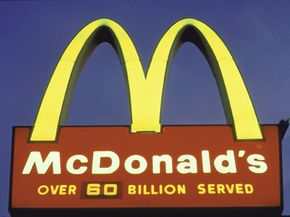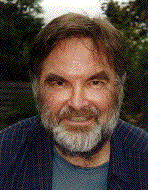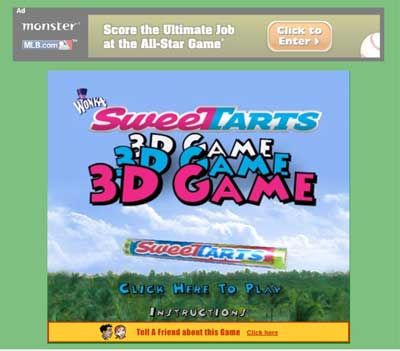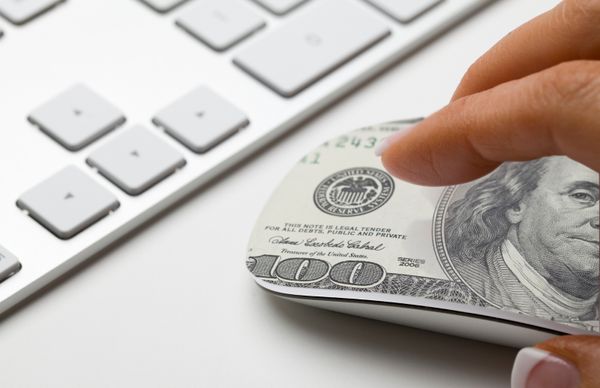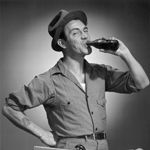A perfectly-formed tagline should fulfill several criteria. First, it should be memorable. Memorability has to do with the ability the line has to be recalled unaided. A lot of this is based on the brand heritage and how much the line has been used over the years. But if it is a new line, what makes it memorable? The big idea should be told in the advertisement. The more the tagline resonates with the big idea, the more memorable it will be.
For example, in addition to be being a clever line, "My goodness, my Guinness!" was made memorable by the illustrations of the Guinness drinker seeing his pint under some sort of threat (perched on the nose of a performing seal, for example). It invoked a wry smile and a tinge of sympathy on the part of the audience at the potential loss if the Guinness was dropped.
Guinness used to use the line "Guinness is good for you" until the authorities got after them, saying "Come on! Guinness is stout! It contains alcohol! It can't be good for you! So stop using that claim!" So, the Guinness ad agency came up with a stroke of genius. The line? "Guinness isn't good for you." A good slogan should recall the brand name, and ideally, the brand name should be included in the line. "My goodness, my Guinness!" works, as does "Coke is it!" On the other hand, "Once driven, forever smitten" does not easily invoke the word Vauxhall -- a British car made by General Motors. If it is successful, the line should pass readily into common parlance as a catchphrase, such as "Beanz meanz Heinz" or "Where's the beef?" In addition to a provocative and relevant illustration or story, alliteration (Jaguar: "Don't dream it. Drive it."), coined or made-up words (Louis Vuitton: "Epileather"), puns, and rhymes are good ways of making a line memorable. So is a jingle.
A good tagline should include a key benefit: "Engineered like no other car in the world" does this beautifully for Mercedes Benz. "Britain's second-largest international scheduled airline" is a 'so what' statement for the late Air Europe. You might well say "I want a car that is engineered like no other car in the world," but it is unlikely that you would say "I want two tickets to Paris on Britain's second-largest international scheduled airline!"
There's a well-known piece of advice in the world of marketing: 'sell the sizzle, not the steak.' It means to sell the benefits, not the features. Since the tagline is the leave-behind, or the take-away, surely the opportunity to implant a key benefit should not be missed?
- Holiday Inn: "Pleasing people the world over"
- Karry-Lite: "Takes the 'lug' out of luggage"
- Polaroid: "The fun develops instantly"
- The Economist: "Free enterprise with every issue"
Conversely, the following lines have no obvious benefits:
- Equity & Law: "Need we say more?"
- Exxon: "We're Exxon"
- Lite Tuff: "That's Lite Tuff!"
- Sapolio Soap: "Use Sapolio"
In addition, a good tagline should differentiate the brand: "Heineken refreshes the parts other beers cannot reach" does this brilliantly. It's a classic. When the line needed refreshing, it was extended in later executions to show seemingly impossible situations, such as a deserted expressway in the rush hour, with the line "Only Heineken can do this," and lately showing unlikely but admirable situations, such as a group of sanitation engineers trying to keep the noise down to the comment: "How refreshing! How Heineken!"
The distinction here is that the line should depict a characteristic about the brand that sets it apart from its competitors, such as these lines that deliver differentiation:
- British Rail: "We're getting there"
- Cheese Council: "Anyway you please it, cheese it"
- Timex: "Takes a licking and keeps on ticking"
- Metropolitan Home: "Mode for your abode"
A good tagline should also recall the brand name. What's the point of running an advertisement in which the brand name is not clear? Yet millions of dollars are wasted this way. If the brand name isn't in the tagline, it had better be firmly suggested. Nike dares to run commercials that sign off only with their visual logo (the Swoosh). The word Nike is unspoken and does not appear. This use of semiotics is immensely powerful when it works, because it forces the viewer to say the brand name.
One of the best techniques for bringing in the brand name is to make the tagline rhyme with it. Here are some lines we've selected from the ADSlogans Unlimited database:
- "Don't be vague. Ask for Haig."
- "It needn't be hell with Nicotinell."
- "See the USA in your Chevrolet."
- "You'll wonder where the yellow went when you brush your teeth with Pepsodent."
A fall-back position is to use a rhyme and mention the brand name without it actually rhyming. Examples include "A Mars a day helps you work, rest, and play," and "We will sell no wine before its time (Paul Masson)." Note how the competitive edge is lost when the brand name is not the rhyme. It could easily be "An apple a day helps you work, rest and play," or "Ernest and Julio Gallo will sell no wine before its time."
An effective tagline should impart positive feelings about the brand: All the lines mentioned previously do this, some more than others. "Once driven, forever smitten," for example, or "Coke is it!" Contrast this with Triumph's line for its TR7 sports car in 1976: "It doesn't look like you can afford it," or America's Newport cigarettes: "After all, if smoking isn't a pleasure, why bother?"
Publishers will tell you that negative book titles don't sell. It is my belief that negative advertising is hard to justify. Notice how boring all the negative electioneering is in political campaigns. The voters just want to turn off. Here is a group of lines that don't profess good tidings:
- Bacardi Spice (Rum): "Distilled in hell"
- Hungry Joes: "Bad news for baked potatoes"
- Kellogg's Eggos Waffles: "You'll never want to l'eggo"
- Lea & Perrins: "Steak sauce only a cow could hate"
Quite importantly, a good tagline should not be usable by a competitor: you should not be able to substitute a competitive brand name and use the line. For example, "My goodness, my Murphy's!" (taking from the Guinness slogan) just would not work, but "A company called TRW" could be "A company called (anything)."
So many slogans have absolutely no competitive differentiation, such as "Simply the Best" and its variants. You could add any brand name to the line and it would make sense. And this often is proven by how many users of a line there are. Consider the following:
- Aspen: "Simply the best"
- Bishop's Nissan: "Simply the best"
- HME Firetrucks: "Simply... the best"
- Kuoni: "Simply, the best"
That's just four -- we have another 25 users of the same line in our database!
Slogans that are bland, redolent of Mom and apple-pie clearly suffer a weakness. Examples include "For those who value excellence" (Henredon Furniture), "We make it better" (Singer), or "We make it happen" (Unisys).
A good tagline should be strategic: Some companies can effectively convey their business strategy in their lines, such as "Innovation" (3M), "Better things for better living, through chemistry" (DuPont), or "Disease has no greater enemy" (Glaxo/Wellcome).
Catchy taglines also try to be trendy, often without success. There are two popular trends in slogans these days. One is the single-word line, such as Hankook Tires: "Driven," (also being used by Nissan in the US), IBM: "Think," (neatly hijacked by Apple as "Think Different,"), or United Airlines: "Rising" (which is being dropped). It is hard to deliver a complex message in a single word, so that brings us to the other trend...
... All in three words (or three terse ideas):
- ADSlogans Unlimited: "Check. Create. Inspire."
- Air France: "New. Fast. Efficient."
- Chevrolet: "Eye it. Try it. Buy it."
- Kellogg's Rice Krispies: "Snap! Crackle! Pop!"
- Monsanto: "Food. Health. Hope."
